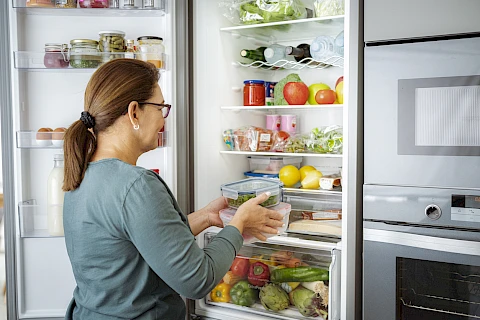
Food safety is essential for seniors as they are more susceptible to illnesses that can result from improper food handling. Senior Helpers Buffalo will take a closer look at food safety practices that support the health of seniors. We'll cover everything from storing food correctly to recognizing when it has gone bad, how to cook it safely, and how to handle leftovers.
What to Know About Foodborne Illnesses
Seniors are at a higher risk of foodborne illnesses because their immune systems might not be as robust as they once were. This makes it easier for infections from contaminated food to take hold. Symptoms can range from mild, like an upset stomach, to severe, such as dehydration or organ failure.
Recognize early warning signs, which can include nausea, vomiting, diarrhea, and fever. Being aware of these risks can help seniors and their caregivers take precautionary steps to avoid these potentially severe health impacts.
Proper Food Storage
One of the foundations of food safety for seniors is proper storage. An organized refrigerator and pantry can prevent spoilage and contamination. Here are some key storage tips:
- Keep the fridge at 40°F (4°C) or below and the freezer at 0°F (-18°C) to maintain food safety.
- Use clear containers and label them with the date of storage, so seniors will know when it's time to use or discard items.
- Store raw meat on the bottom shelf of the refrigerator to prevent juices from dripping onto other foods.
Recognizing Spoilage
Seniors and their caregivers should be able to identify when food has gone bad. Dairy products, for example, often spoil by developing a sour smell or a curdled texture. Meats can develop a bad odor, slimy texture, or grayish color.
To effectively determine spoilage, rely on the "smell, look, and feel" test: If something smells off, has an unusual appearance, or feels sticky when it shouldn't, it's best to err on the side of caution and not consume it.
Safe Cooking Temperatures
For seniors, food safety means cooking food to the right temperature to kill harmful bacteria. Different foods require different internal temperatures. Poultry should be cooked to an internal temperature of 165°F (74°C). Ground meats, such as beef or turkey, should reach 160°F (71°C). Steaks, roasts, and fish should be cooked to a minimum of 145°F (63°C).
Using a food thermometer is the most accurate way to ensure you've reached these safe temperatures. Insert the thermometer into the thickest part of the food, avoiding bone, fat, or gristle, to get the most accurate reading.
Handling Leftovers
Enjoying leftovers is a great way to reduce waste, but they need to be handled with care. Refrigerate leftovers within two hours of cooking and consume them within three to four days. When reheating, ensure leftovers reach 165°F (74°C) to kill any bacteria that may have developed.
Reducing the Risk of Foodborne Illnesses
Prevention is the best line of defense against foodborne illnesses. Regular handwashing is crucial, especially before and after handling food. Additionally, keep kitchen surfaces clean and sanitized. When handling raw foods, use separate cutting boards for meats and produce to prevent cross-contamination. Avoid reusing plates or utensils that have come into contact with raw food before they've been properly washed.
Contact Senior Helpers for Help With Food Safety
Food safety is a vital part of a healthy lifestyle for seniors. By following these guidelines, seniors can minimize their risk of foodborne illnesses. For those living in Buffalo, Depew, Lancaster, Amherst, and Bowmansville, Senior Helpers Buffalo is here to offer further assistance and support. Contact us to learn more about our senior care services.